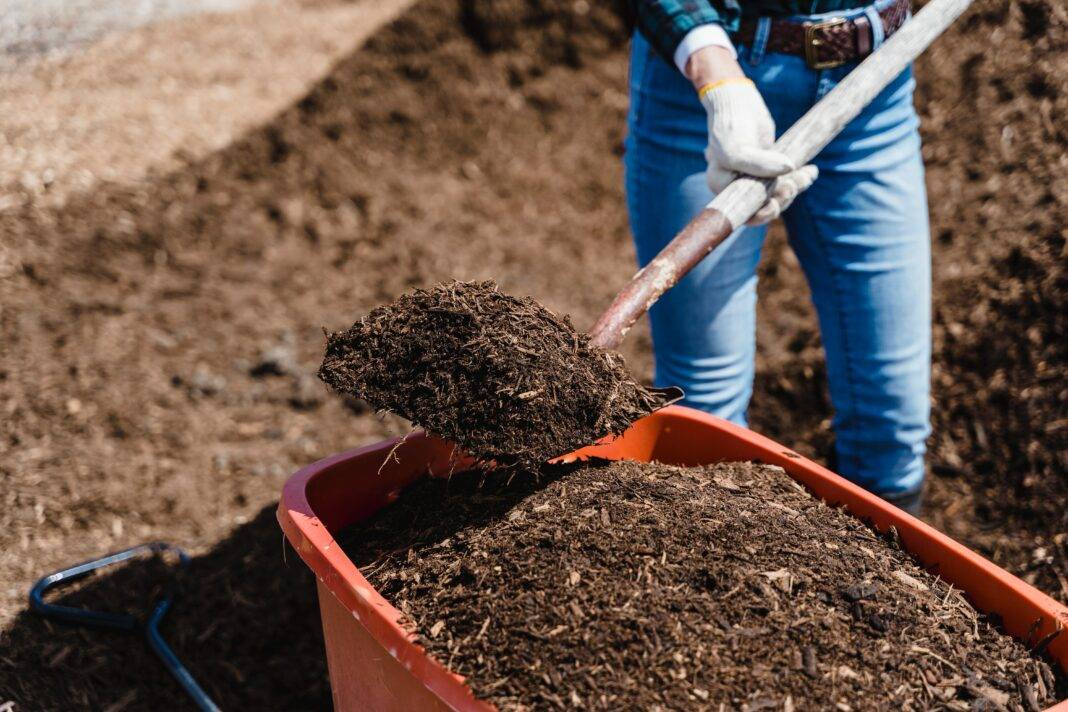Composting, a complicated process in New York City during the best of times, became more confusing than ever in 2023. Thankfully, people who wanted to compost generally could, with some effort and the help of city workers and volunteer groups at greenmarkets. But the infrastructure changed — often.
For years, New Yorkers relied on volunteer or non-profit programs to manage their compost. Organizations like GrowNYC would encourage people to drop compost off at volunteer-run collection stations. That was, until November 2023 when Eric Adams slashed any funding for these programs in his proposed budget.
New Yorkers generate a staggering 8 million pounds of residential food and yard waste daily, making composting a crucial element in the city’s waste management strategy. Despite the dedicated efforts of city workers, volunteer groups, and organizations like GrowNYC, infrastructure changes left the state of composting looking like a decomposing banana, with the city’s residents caught in a compost crisis characterized by funding cuts, changing infrastructure, and ethical concerns.
New York City had been trying for years to create a city-wide composting program. After an on-again-off-again pilot program in Queens, curbside composting came to Brooklyn. Brooklyn’s brown bin collection began on October 2, 2023.
Curbside collection is not without issue, and the volunteer-run compost collection offers a stable option while the curbside program is established.
In June 2023, City Council signed a law mandating all New Yorkers to separate organics from their trash by 2025. The plan, similar to recycling practices, aimed to divert food waste from landfills. Fines would also be imposed beginning in 2025. Many landlords, disinterested in managing another waste collection program, opted out. Until it becomes mandatory (and until they are fined for non-compliance), many buildings are still without curbside collection.
Early in 2023, the Department of Sanitation (DSNY) introduced 200 compost “Smart Bins” across the boroughs, aiming to enhance composting accessibility. Queens, the pilot borough, experienced disruptions in pickup schedules, with the program even paused for months. The rollout faced challenges, mirroring the fits and starts that have characterized previous composting initiatives in the city.
In February 2023, “Smart Bins” caused problems in Prospect Heights, where residents generated such high volumes of food waste that bins were filled daily by mid-morning. This led to food scraps being left next to the bins, undermining their intended rat-proofing function. Brooklyn eventually saw the initiation of curbside composting on October 2, 2023.
One reporter followed the Smart Bins from collection to decomposition and found that the compost is used for methane production, not soil fertilizer. The process, which expanded with the curbside program, takes compost and quickly breaks it down into an “engineered bio-slurry.” This slurry is added to sewage at wastewater treatment plants where it then breaks down into methane. National Grid uses this methane as a form of un-fracked natural gas, also called “biofuel.” The gas helped run the Newtown Creek wastewater treatment plant. Any excess was burned off, much to the chagrin of residents and activists alike.
Critics of the biofuel program call it greenwashing. After a series of “issues,” the program quietly went offline in November.
On the opposite side, local composting programs rely on bacteria, fungi, and microorganisms to break down food waste into nutrient-dense compost. The GrowNYC program freely distributes the compost “to community gardens, urban farms, neighborhood parks, street tree beds, and members of the public.” Thankfully, an anonymous donor stepped in to save the program for the next six months. Other local composting programs — the LES Ecology Center, Earth Matter NY, Big Reuse, Snug Harbor Cultural Center and the New York, Brooklyn and Queens Botanical Garden — will be in danger when Mayor Adams’ proposed budget cuts begin. Councilwoman Sandy Nurse expressed concerns that the proposed cuts could eliminate a significant portion of the city’s restaurant kitchen waste drop-off sites, adding to the challenges faced by composting initiatives.
An upcoming compost teach-in hosted by The Big Reuse on January 23 via Zoom reflects the ongoing efforts to educate and engage New Yorkers in sustainable composting practices.
For now, Brooklynites with curbside composting access can use their program or support a volunteer-run program nearby. Smart Bins, which will be available to anyone, are also a good option (as long as they’re not being overrun). For those without brown curbside bins, or not near a Smart Bin, you may just need to hope for another anonymous donor to save your local compost collection.


